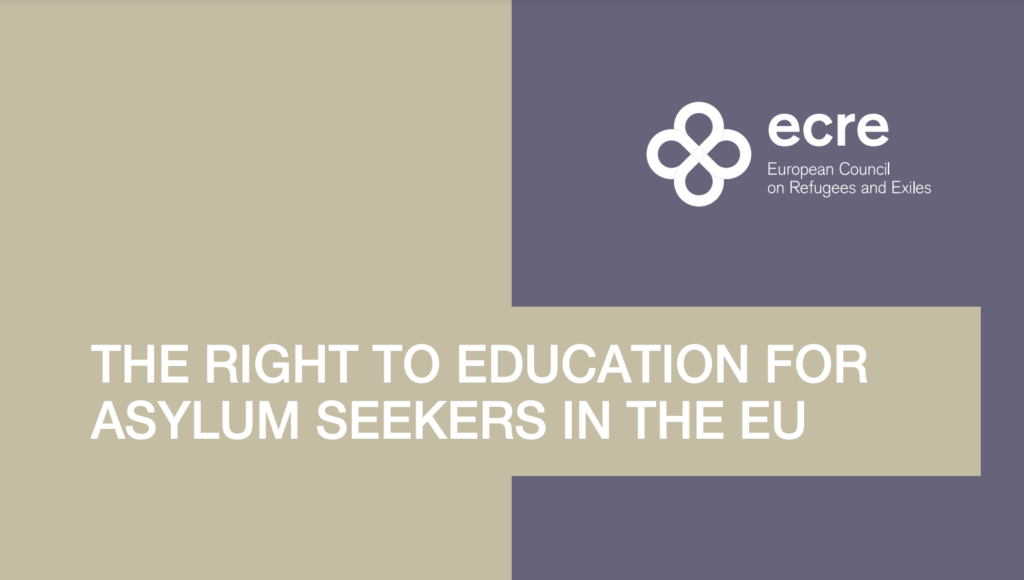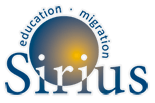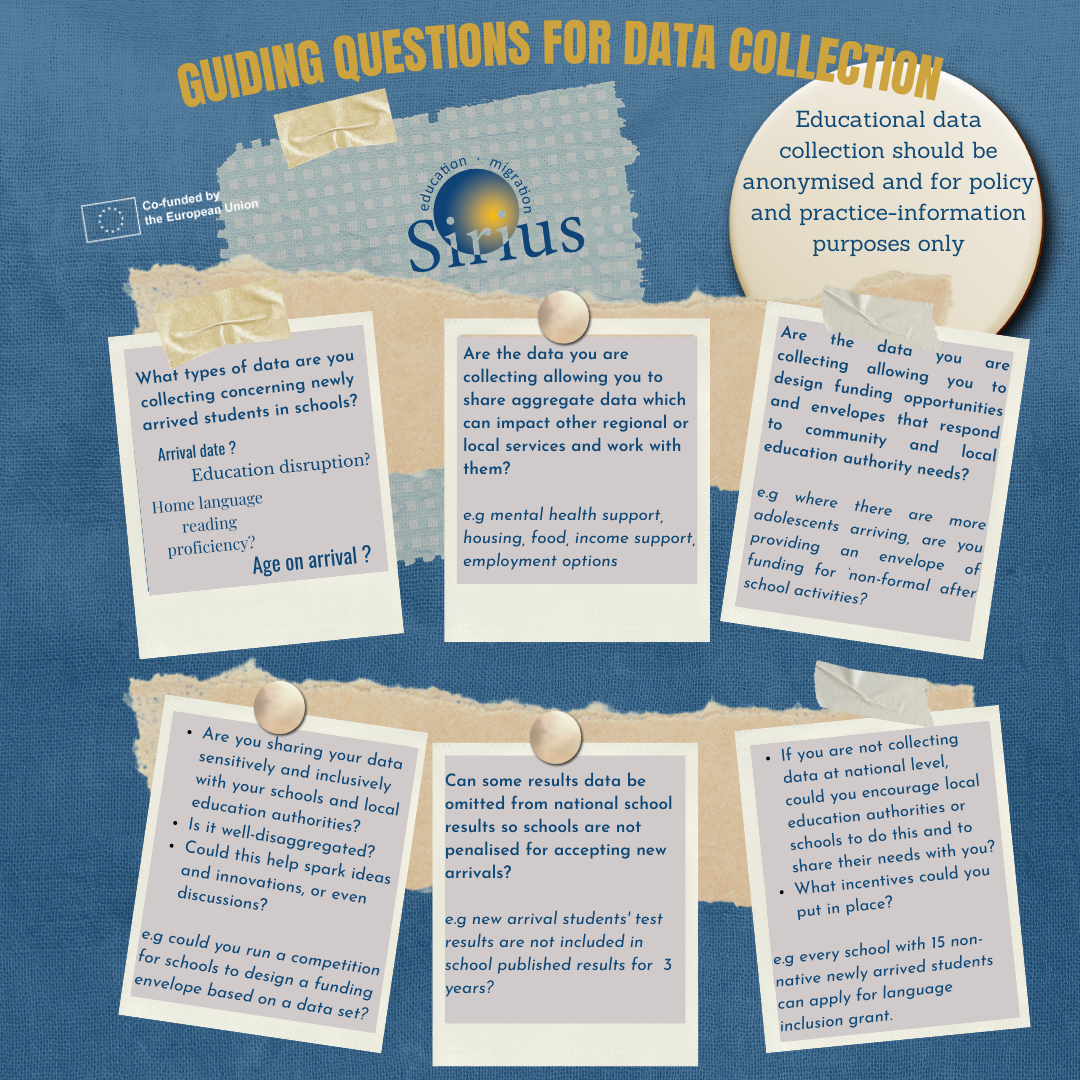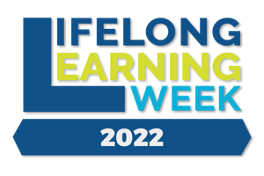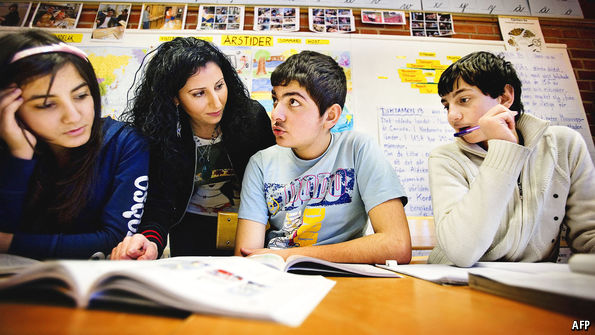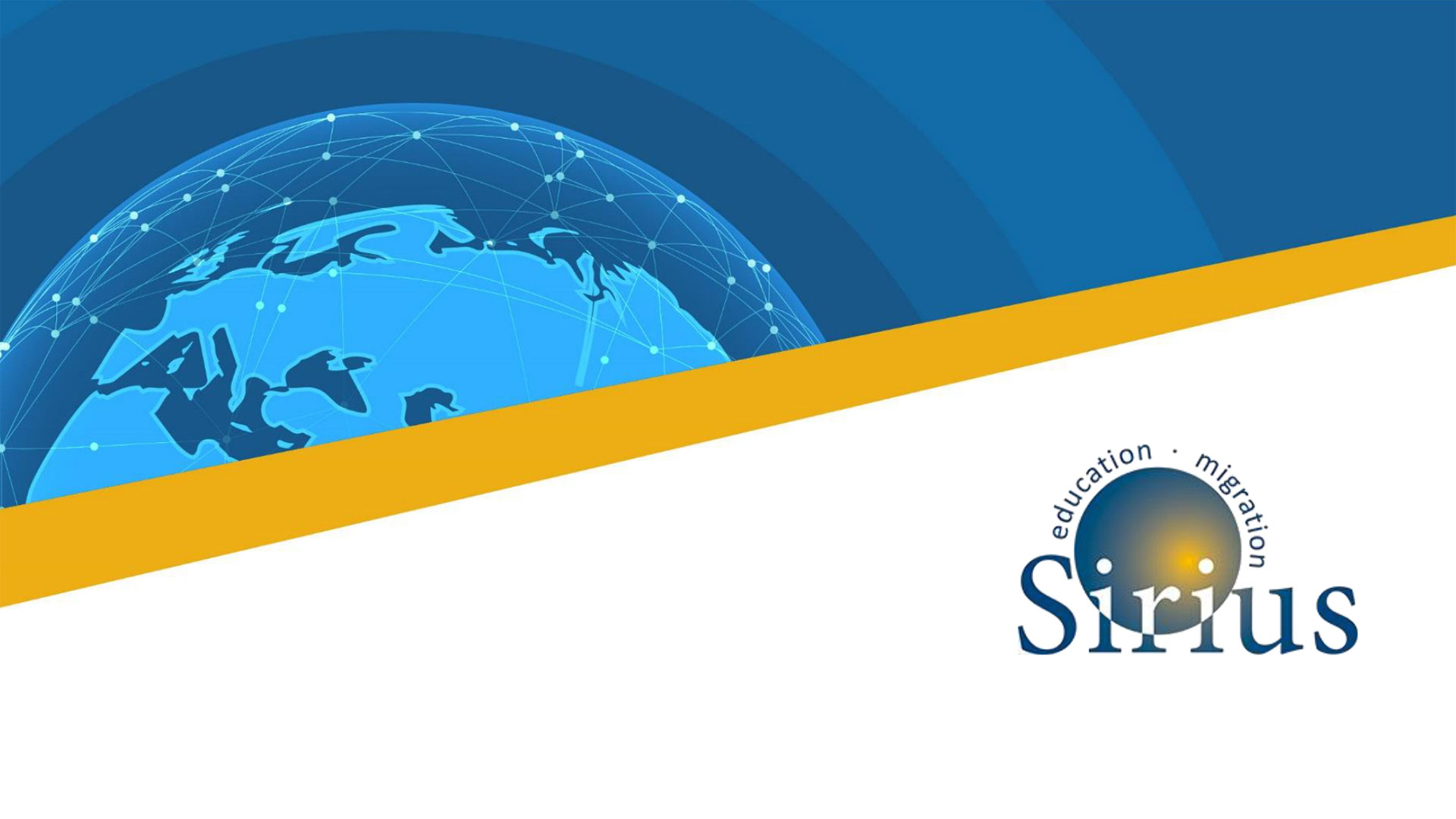Access to education is addressed in article 14 of the Charter of Fundamental Rights Of the European Union. According to article 14, everyone has the right to education and to have access to vocational and continuing training. Within the EU legal framework, the right to access education for asylum seekers and unaccompanied and separated minors is also recognized under the Article 14 of the Reception Conditions Directive, which mandates minors asylum applicants must access education within three months.
Focusing on the right to education of asylum seekers, ECRE has produced a Policy Note on “the right to education for asylum seekers in the EU”. According to the policy note, the lengthy asylum procedures are negatively affecting the access to education due to delays in application processing. Furthermore, in many Member States minors asylum seekers and unaccompanied minors don’t have access to the schooling systems while they are in reception centers. The lack of information upon arrival is another issue that limits the educational opportunities of UASC.It is imperative that they receive transparent information about the various education pathways available to them.
Moreover, newcomers tend to be placed in lower academic tracks, often because their previous studies are not considered as valid or not accurately considered. The report also calls upon MS to invest in preparatory classes and language. Funding preparatory classes is key for the successful inclusion of newcomers in mainstream education.
Apart from compulsory education, it also underlines the importance of offering opportunities in post-compulsory education, higher education and vocational training for UASC. In many cases, these educational pathways are not prioritized because they are not part of compulsory education. However, regardless of their legal status, the access to all educational levels should be guaranteed for all newcomers. When it comes to non-compulsory education, some of the challenges UASC face are related to the recognition of diplomas, language requirements, residence permit and the lack of financial aid from the governments .
Education is a basic human right, and therefore the ECRE Note emphasizes the obligation of Member States in ensuring the access to education to asylum seekers. The policy note concludes with a series of recommendations for Member states and the European Commision. You can read all the recommendations here.
Advocating for inclusive and high quality education for UASC is one of SIRIUS priorities. As part of our various activities in this area, we are currently participating in the SUN project, which focuses on the use of the EU Charter of Fundamental Rights as an effective legal instrument to promote and protect the rights of unaccompanied and separated refugee and migrant children (UASCs) on the EU territory. Find more information about the project here.
